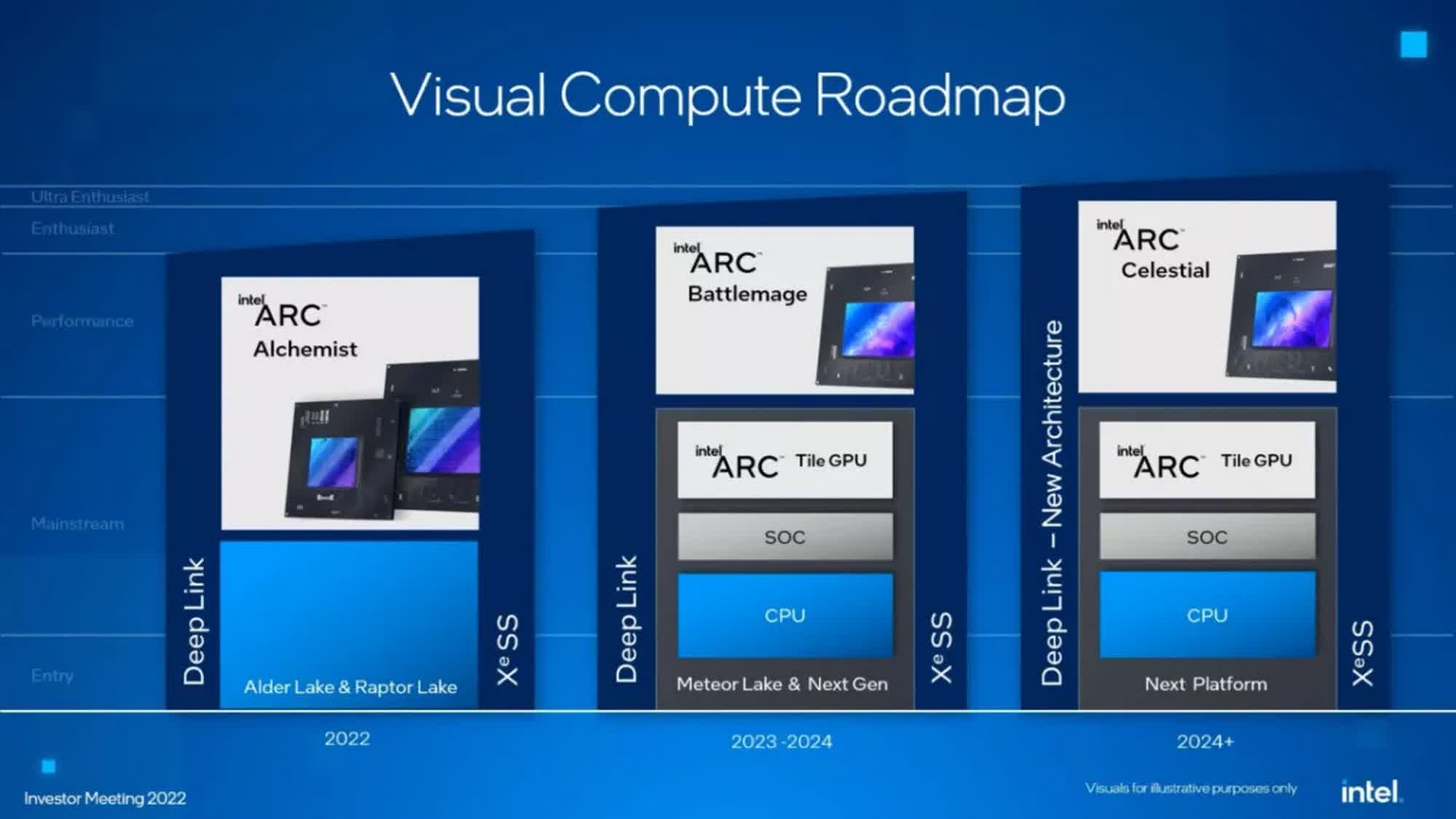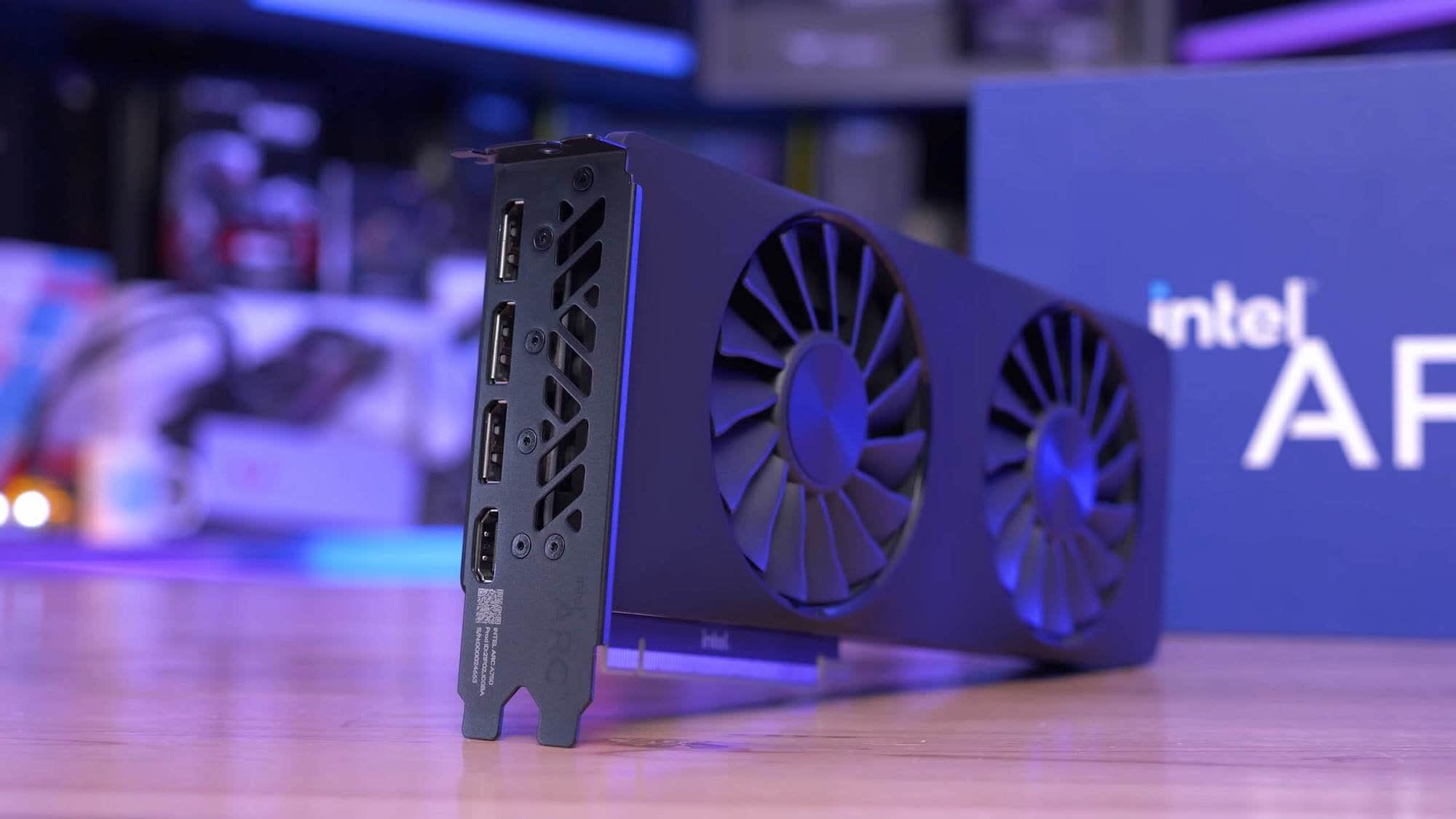Something to look forward to: Intel's first-generation Arc Alchemist graphics cards may not have been a roaring success, but the company hasn't given up the ghost on its discrete GPU dreams, apparently. According to the latest reports, Intel is going ahead with its plans to launch its next-generation graphics cards in the coming years to compete against Nvidia and AMD. The reports also reveal the possible launch timeframes and process nodes for Intel's upcoming GPU lineups.
Intel has reportedly chosen the world's biggest semiconductor foundry, TSMC, to manufacture its next-generation Battlemage and Celestial GPUs. While the former is set to release in the second half of 2024, the latter is expected to debut in 2026.
According to industry sources cited by Taiwan's Commercial Times, the Battlemage GPU will use the Xe2 architecture and be fabricated using TSMC's 4nm process node, while the Celestial GPU will use the Xe3 architecture and be manufactured using the company's N3X (3nm) process.
If the reported timeline is anything to go by, it will take more than a year for the Arc Alchemist successor to be commercially available, meaning they will likely have to compete with Nvidia and AMD's next-gen GPU lineups rather than taking on the RTX 40-series and Radeon 7000-series products that are currently available in the market.

Intel reportedly expects strong demand for GPUs among gamers and creative professionals, as well as from businesses for AI accelerators and other graphics-intensive tasks. The company believes that the deal with TSMC will help it grab a share of the growing GPU pie in the coming years, but whether that happens remains to be seen.
Meanwhile, Intel has reportedly canceled its Ponte Vecchio graphics chips and the second-gen Rialto Bridge data center Max GPUs to better focus its resources on the development of the new HPC-focused Falcon Shores XPUs. These were expected to arrive as a CPU+GPU architecture in 2024, but Intel recently confirmed that they will debut in a GPU-only avatar in 2025.
The lukewarm response to the Alchemist lineup, followed by the recent departure of Raja Koduri, the head of Intel's Accelerated Computing Systems and Graphics department, opened the floodgates for wild speculation about the fate of the company's discrete graphics division, so it's heartening to know that its GPU plans are still on course, despite persistent rumors to the contrary.
